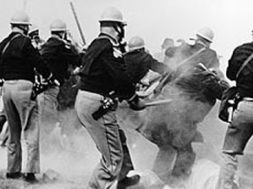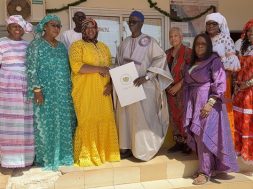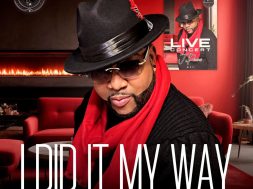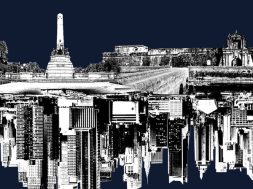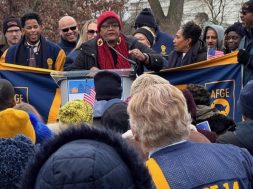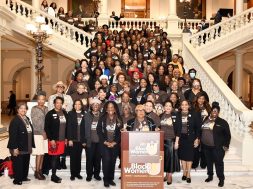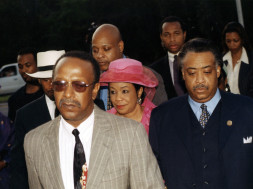
The “Endgame: AIDS In Black America” Continues An Unfair Game with America and Black People’s Lives – by Cleo Manago
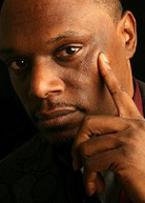 “Endgame: AIDS in Black America,” an edition of the PBS network’s “Frontline” that aired recently, personifies the timidity Holder references in that the documentary only went but just so far, and not far enough. The special feature barely touched the surface of AIDS in Black America, an over 30 year ride on a vehicle never allowed to move. In reality, AIDS in Black America has been stuck in first gear by racism – both internalized by African Americans – and institutionalized by America’s tendency to treat Black male life as marginal, disposable and more valuable, if compromised, controlled, diseased or disloyal to the African American community.
“Endgame: AIDS in Black America,” an edition of the PBS network’s “Frontline” that aired recently, personifies the timidity Holder references in that the documentary only went but just so far, and not far enough. The special feature barely touched the surface of AIDS in Black America, an over 30 year ride on a vehicle never allowed to move. In reality, AIDS in Black America has been stuck in first gear by racism – both internalized by African Americans – and institutionalized by America’s tendency to treat Black male life as marginal, disposable and more valuable, if compromised, controlled, diseased or disloyal to the African American community.
In more than three decades, the United States never produced a supportive campaign targeting Black males at HIV risk. That diverse HIV negative and positive Black males were closed out of HIV prevention access by gay-identity politics; and how HIV went from having a White face, to no face, to a Black female face, was not remotely engaged in “Endgame.” These are all directly connected to why HIV/AIDS still disproportionately ravages the lives of Black men and Black women, however, keeping both at-risk.
Featured in “Endgame” are so-called homophobic attitudes in Black communities, drug use and a lack of education. Yet, these don’t actually explain the epidemic because the anti-homosexual movement in this country is led by White men, Pat Robertson, Scott Lively, and previously the late Jerry Falwell. African Americans, especially highly impacted groups – Black homosexual and bisexual men – are no less educated on HIV than White men. People among Whites have poverty, men who get incarcerated and have sex with men in prison and excessive substance abuse too, but neither suffers from an HIV epidemic. Also neither suffers directly from the reverberations of racism, or from being people of African descent in America. African Americans do.
Worse of all, “Endgame” never mentions the HIV interventions designed by and for Black people now being researched by the Centers For Disease Control and Prevention because of their promise. ‘Endgame’ provided no examples of promising solutions to AIDS in Black America. This possibly racist under or misrepresentation of the facts illustrates the cowardice Mr. Holder spoke of. What Americans saw in ‘Endgame’ was whatever and whoever the documentary writer and PBS – who are not Black – decided to include. The National Black Programming Consortium (I think purposely) was listed to give the impression that “End Game” had Black architects. It did not.
Cleo Manago, founder and CEO of the Black Men’s Xchange
To date, every highly profiled film on Blacks and AIDS in America has been written and produced by someone White. This gap in representation is not because of a lack of gifted Black documentarians and journalists in America. As a matter of fact, in 2009, the late Claudia Pryor (who used to produce “20/20” for ABC) produced and directed a Black AIDS documentary called “Why Us? Left Behind and Dying.”
Pryor’s riveting film was considered for an Oscar. While the documentary has an unfortunately dismal title, uniquely, it featured “inner city” Black youth as the narrators. Being that HIV/AIDS could impact their future in particular, this was a compelling and brilliant HIV educational angle by Pryor. Because Pryor was Black and had lived insights into the nuances of Black life and culture, her film is richer and more engaging than “Endgame.” But, it apparently was not acceptable to “mainstream” sources. So, despite its value it has been unacknowledged. Here is a link to Claudia Pryor’s film – http://www.diversityfilms.org/
The Black HIV/AIDS game has not ended and has yet to be fairly played. The actual healing and effective HIV prevention work being done (and it is being done) for Black people, and particularly for Black men in America, apparently won’t be televised, because of racism and related agendas in American media.
Solutions to the dilemma of AIDS in Black America and gaps in story-telling on the issue include:
The link to the “End Game” http://www.pbs.org/wgbh/pages/frontline/endgame-aids-in-black-america.
Cleo Manago is founder and CEO of the Black Men’s Xchange (BMX) (http://www.bmxnational.org/), the nation’s oldest and largest community-based movement devoted to promoting healthy self-concept and behavior among same gender loving (SGL), gay-identifying and bisexual African-descended males.

